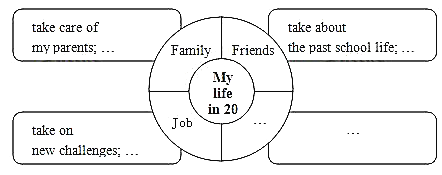题目内容
学校将举办英语写作比赛,请根据所给提示,以“My life in 20 years”为题,写一篇短文,分享你对未来的憧憬。

注意事项:
1.词数: 100词左右(文章开头已给出,不计入总词数);
2.文中不能出现真实姓名、校名等信息;
3.文章必须包含所提供的主要信息,并作适当发挥。
My life in 20 years
I’m always working hard for a bright future I imagine
练习册系列答案
相关题目

